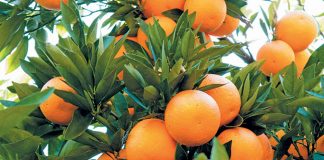There are five primary drivers of the demand for these species, he said in Absa Agribusiness’ Agricultural Outlook for 2015. First, he said, higher profitability of ranching practices of plains games species made it possible for farmers to diversify to breed high-value species. Secondly, there were initiatives such as the possible listing of rare game species on the Johannesburg Stock Exchange, the export of species and re-introduction in other African countries. Farmers were adding high-value wildlife to their traditional operations in a bid to boost their debt-to-asset ratios, he said.
Also, the profitability of these species were attracting corporate investors who got higher rates of return than in other assets. Lastly, the Wildlife Ranching SA (WRSA) model for land reform proposed a highly profitable option which could be pursued on small pieces of land.
Game ranching takes up 17% of agricultural land in SA and contributes about R9 billion to the economy. In the hunting season, game takes up 10% of SA’s red meat consumption. The industry was growing exponentially with an encouraging number of new entrants, said Dr Peter Oberem, president of WRSA. “We have a unique product because there is nowhere else one can find the range of species, the abundance of game, the scientific experts and the expertise that exists here,” he said.
Quality in the game industry related to horn length and colour definition in the colour-variant market. But buyers in the buffalo market were selecting for traits such as femininity in cows, depth and capacity. Breeding animals were worth roughly four times the value of those sold for hunting where price ceilings were set by hunters.
Strong demand far outweighed supply and showed that the industry was on an upward curve, said Richard York, breeder of golden wildebeest and sable antelope. Oberem did not believe the industry was heading for an economic bubble.
“Of course, as more farmers breed high-value game animals, more animals come onto the market and prices stabilise. Stable markets attract solid investment,” he said. The game meat market had a big future, said Oberem, but meat needed a dedicated scheme as the Meat Safety Act precluded the delivery of dead animals to abattoirs, which automatically excluded game.
“We’ve been in negotiation and are prepared to set high standards that will more than meet requirements.”












